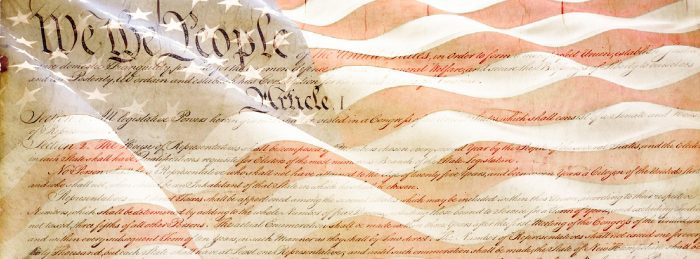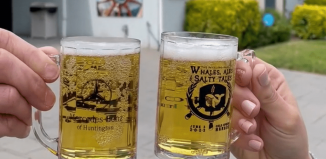Making Democracy Work: ‘We the People?’
By Lisa Scott
Independence Day traditions bring together families, friends and communities to celebrate being American. It’s not traditionally a time for introspection over barbecues, at ballparks and beaches and enjoying (or hiding from) pyrotechnics. But in 2022 July 4 occurred at a time of deep national concerns: economic, environmental, judicial, governmental and local.
Journalists, pundits, academics and attorneys have weighed in on end-of-term Supreme Court decisions which overturned Roe v. Wade and New York State’s restrictions on concealed carry of guns, brought religion further into publicly supported education and severely limited the ability of the EPA to address carbon emissions in a time of severe climate change.
The New York Times on July 3 wrote, “The United States appears to be drifting apart into separate nations, with diametrically opposed social, environmental and health policies… The tearing at the seams has been accelerated by the six vote conservative majority in the Supreme Court, which has embraced a muscular states-rights federalism.”
The Constitution has been evoked more and more in the past year; some demand a literal interpretation, while others wonder what happened to its amendments’ rights and freedoms. 235 years ago our nation’s founders wrote “We the People” to commence the preamble to the Constitution, yet the common ground of our civic beliefs has severely eroded.
Where you live determines what rights you have. We are no longer (if we ever were) equal Americans. But the League of Women Voters has and will continue to educate and advocate for voting rights which exemplify freedom — “the freedom to determine who we are, who we want to be and who we want to make the decisions about our country and our bodies” (Dr. Deborah Turner, President, LWVUS).
At our annual convention in late June the League of Women Voters of the United States reflected on new barriers to voting and continued attacks on our democracy, and the ways in which LWV is working to register new votes, but particularly to “Get Out the Vote.” From 2020-2022 (even through the challenges of the Covid-19 pandemic)) there were 12 million contacts with voters. The League’s efforts tackled systemic challenges to voting rights through advocacy, litigation and organizing. The goal was to build more trust in our elections, grow our electorate with equity, create fairness for voter access and ensure community districting truly reflects our population.
The League’s Vote411.org voter information website was accessed by 5.5 million voters to view their ballot in over 40,000 races. Over 89,000 candidates were listed. Voters could check their voter registration, request an absentee ballot and review nationwide voting rules.
LWV litigated on a variety of issues including voter access during Covid-19, the 2020 Census, redistricting, money in politics and excessive voter purges. LWV filed lawsuits in more than half the states to ensure adequate ballot notice and cure procedures, access to drop boxes and greater access to voting by mail. LWV also joined amicus briefs supporting common sense money in politics regulations and intervened in cases to prevent irresponsible voter purges.
Our New York State LWV has also been active on the state level, including amicus briefs and litigation especially on NYS redistricting and the complications resulting from the court requiring redrawn Congressional and NYS Senate districts, leading to two primary dates in 2022 (June 28 and August 23).
LWVUS also continued focusing on the protection and enforcement of voting rights in the 117th Congress which included the For the People Act, the Freedom to Vote Act and the John Lewis Voting Rights Act. Alongside national voting civil rights partners, LWVUS supported hundreds of state and local Leagues in leading and joining distributed actions around the country in support of federal voting rights legislations, resulting in hundreds of actions and thousands of voters engaged. In spite of this work, the US Senate failed to advance (combined) Freedom to Vote: John R. Lewis Act past debate.
In 2022 and beyond, Get Out The Vote efforts must be stronger, louder, and even more creative. We can register millions, but if only thousands vote, have we truly empowered voters? Our democracy is not based on age, race, gender, or zip code — it is for everyone, and that is why we must not only fight back but lead the charge. This is not a partisan issue — This is an American issue. “We the People” should together want to make our democracy stronger and create a more perfect union.
Lisa Scott is president of the League of Women Voters of Suffolk County, a nonprofit, nonpartisan organization that encourages the informed and active participation of citizens in government and influences public policy through education and advocacy. For more information, visit https://my.lwv.org/new-york/suffolk-county or call 631-862-6860.







